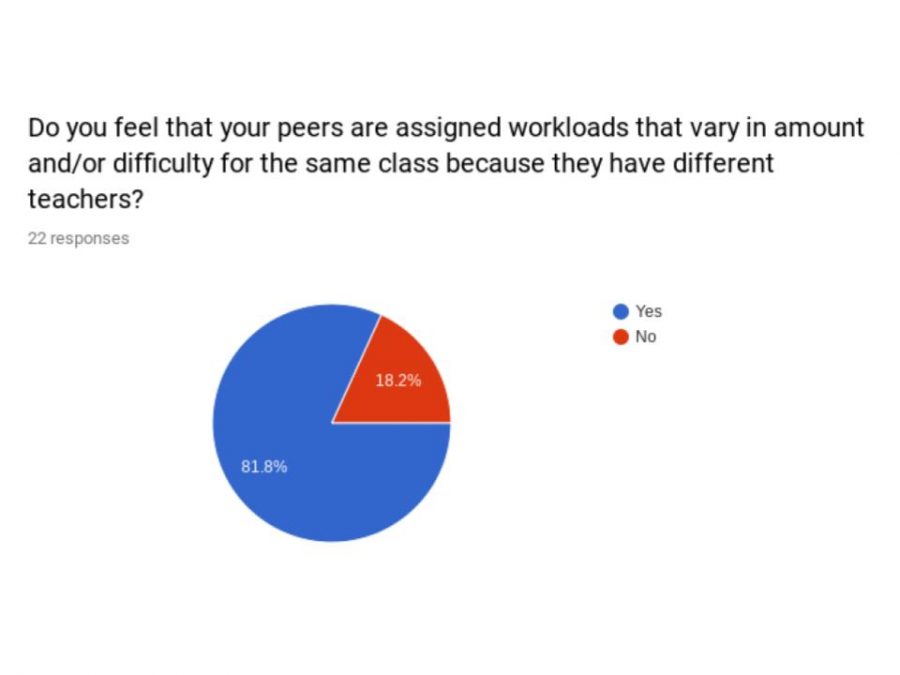Consistency of The Curriculum
September 18, 2019
All classes are not created equal. You may have experienced this yourself: you take the same course as a friend but somehow they always seem to have less homework, less coursework, and an easier time when they get their grades back. Consistency of workload or grading policies or lack thereof is a concern for students.
To determine if the student body if a whole felt similarly about their courseloads, a survey was conducted. Questions such as “Do you feel that your peers are assigned workloads that vary in amount and/or difficulty for the same class because they have different teachers?” and “If you believe this is a problem, should the school system standardize the curriculum, or should teachers be allowed to teach the class the way they see fit?” were asked and student responses essentially reflected my personal expectations and feelings on the subject.
82% of all students who responded say that they or someone they knew have been the recipient of a larger or more rigorous course load because of the teacher who taught the class. Students of all grades responded but especially those in the upper-level/ AP classes stated that they felt there is a disparity in terms of the workload assigned.
Interestingly, although 63.2% of students who responded to our survey think that a difference in class assignments was unfair, the vast majority agreed that teachers should be able to teach the class the way they personally believed will have the best impact on their students. The general consensus among students is that although a disparity in the workload between classes is a source of frustration, it is not the place of the school administration or another authority to regulate or limit the teaching styles of individual teachers. If there is to be a change it seems that students feel it should be initiated by the teachers themselves, coordinating so that the differences between their classes are not as drastic as they currently are.
In an interview with Dr. Irizarry, he was adamant that it is the goal of the CHS administration and teaching staff that work assigned to students should be rigorous and engaging, to challenge students while ensuring that they have the opportunity to practice relevant material in a way that will truly help their understanding of the lessons taught. Rigorous work does not always mean more work, the emphasis should not be placed on the quantity of work assigned, but rather the impact it has on the student. “We’re trying to push more towards that deeper understanding and that rigor as opposed to more work.”
In an interview with a student who wishes to remain anonymous, they confirmed that they and many of their peers have experienced variances in courseload depending on the teacher. When I asked them to explain they said, “I get it that they (the teacher) have their own teaching style, but I think that should stay in the classroom. When some students have drastically more homework than others, I think that’s where it starts to become a problem.”
It’s obvious that a difference exists between the work assigned by different teachers, which is not in and of itself a problem. The problem occurs when the extra work doesn’t help the student any more than more engaging work in smaller quantities. And when the extra “busy work” affects the student outside of school, it might be doing more harm than good.





